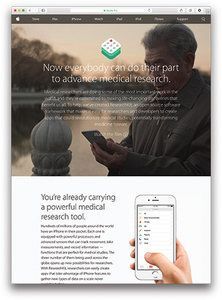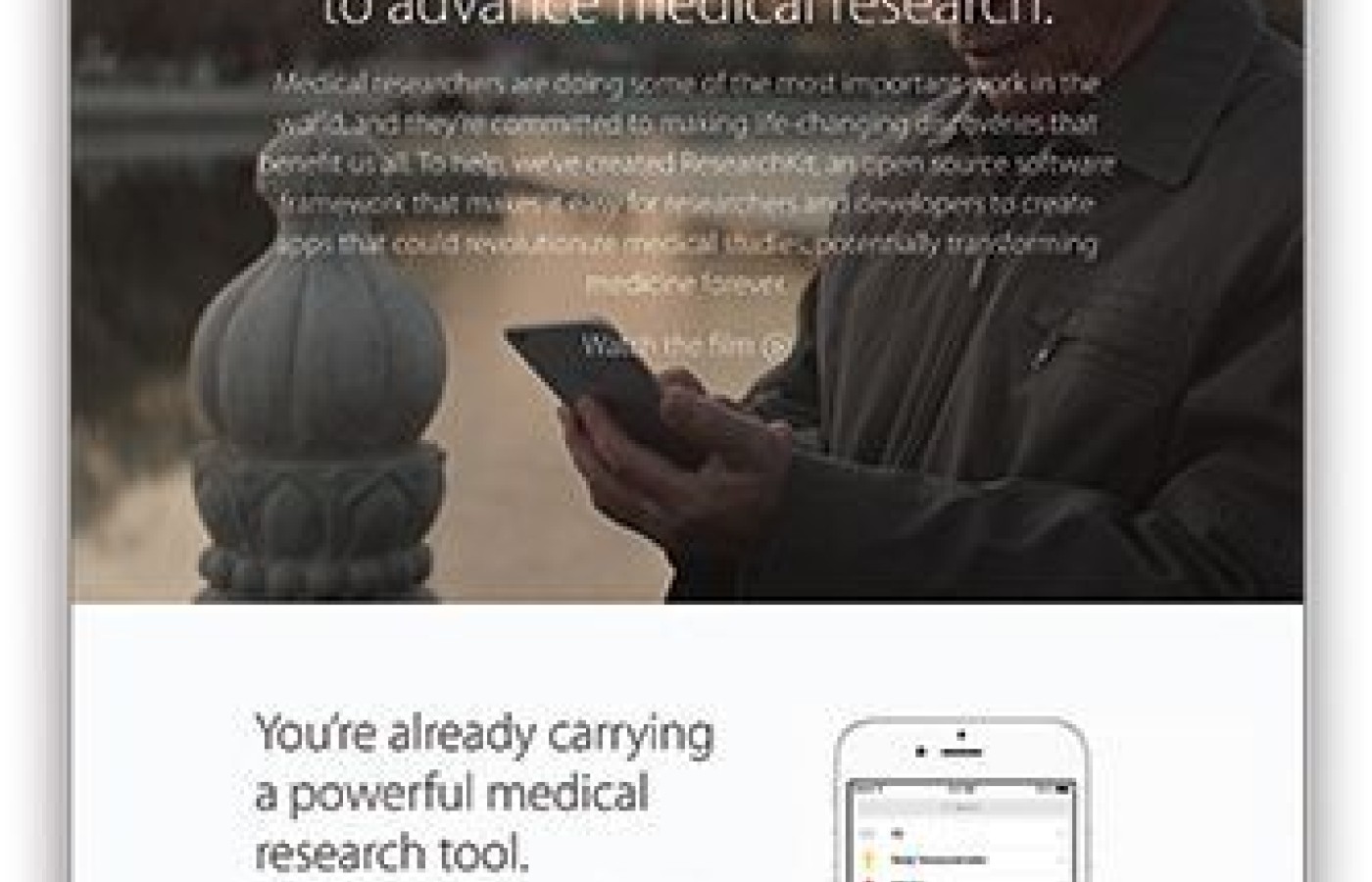It’s a new year and many chiropractors are evaluating what will enhance their respective practices, particularly as it relates to their bottom line. One of the most common questions I get is: “Do I need to be credentialed to bill insurance, and what are the best plans to join?” It’s a loaded question – but one every DC ponders. Whether you're already in-network or pondering whether to join, here's what you need to know.
Apple Takes a Bite Out of Research
The more than 700 million iPhone users have just been given the opportunity to "do their part to advance medical research." Apple has released ResearchKit, "an open-source software framework that makes it easy for researchers and developers to create apps that could revolutionize medical studies, potentially transforming medicine forever." As Apple explains it:
"Hundreds of millions of people around the world have an iPhone in their pocket. Each one is equipped with powerful processors and advanced sensors that can track movement, take measurements, and record information – functions that are perfect for medical studies. The sheer number of them being used across the globe opens up new possibilities for researchers. With ResearchKit, researchers can easily create apps that take advantage of iPhone features to gather new types of data on a scale never available before."
Revolutionizing the Acquisition of Health Data
In essence, Apple's ResearchKit will utilize the vast number of iPhone users to provide much larger databases – and over larger geographic areas – for almost every health condition experienced in everyday life. Patients are being asked to become partners in finding solutions for their ailments, with very little required besides downloading an app and utilizing it to monitor their health.
There are many forms of daily activity an iPhone can measure – all in real time, throughout the day, in objective fashion. For you, this might mean your patients eventually will be able to download a "subluxation app" that will record their normal spinal movements when they are subluxation free in your office. Then, as they walk and move, the app would detect abnormalities that could ultimately give the patient (and you) an alert that their movements have changed to the point that they have lost some of their spinal function. Such an app could feasibly measure other bodily functions impacted by the detected subluxations. (More on that later.)

ResearchKit Apps
Specific apps for specific ailments are already being developed with the assistance of major medical research universities. Currently, there are ResearchKit apps for diabetes, cardiovascular disease, asthma, breast cancer and Parkinson's disease.
The Parkinson's disease app has a "tap test" to measure hand tremors and a voice "ahhhh test" to measure voice tremors. The "walk test" directs the patient to walk 20 steps in one direction, turn around, walk back and stand still. The accelerometer and gyroscope in the iPhone precisely measure gait and balance.
The apps also measure activity levels. This allows data to be collected about how exercise and activity impact the patient's health and ailments. Best of all, the patient gets to see the test results and better understand how their daily activities are impacting their health.
More Chiropractic APPlications
From a chiropractic perspective, the patient could gauge whether the exercise you recommend is having the desired effect on muscle strength and musculoskeletal stability. Obviously, if there were a subluxation app, they could see immediately how your adjustments to correct those subluxations benefit their health. As the years go by, the lifetime benefits of chiropractic care could be seen by assessing multiple aspects of wellness.
These apps also could have a tremendous impact on the nutritional side of patient health. The diabetes app already looks at glucose levels. This could easily be expanded to include lab tests that require a very small blood sample the patient could provide and measure at home. Over the years, data on patients who focus on meeting their nutritional needs and eating appropriately could begin to demonstrate the long-term benefits of good nutrition.
In case you are wondering, the Apple folks are very serious about the privacy of the data. Patients get to decide how their data is shared and Apple has made the commitment that it "will not see your data." Hopefully, the same commitment will be made as apps are developed for other devices.
Again, the ResearchKit is open-source software. This means anyone can build an app that will help gather data. Your patients could be using their iPhones to help collect data on how your adjustments are impacting their health. This data would be very powerful. As more DCs get involved, we could measure in millions of patients – and at very low cost – what chiropractic has rarely had the funding to measure. You also could potentially sync the data with your electronic health record software, allowing you to address the patient's ailments in real time, rather than just collect data while the patient suffers.
Sound like something you're not ready for? Get ready, because this is where health care is going – it has to.
Reference
- Apple Media Event: presentation by Tim Cook, Apple CEO, March 2015.
Read more findings on my blog: http://blog.toyourhealth.com/wrblog/. You can also visit me on Facebook.



